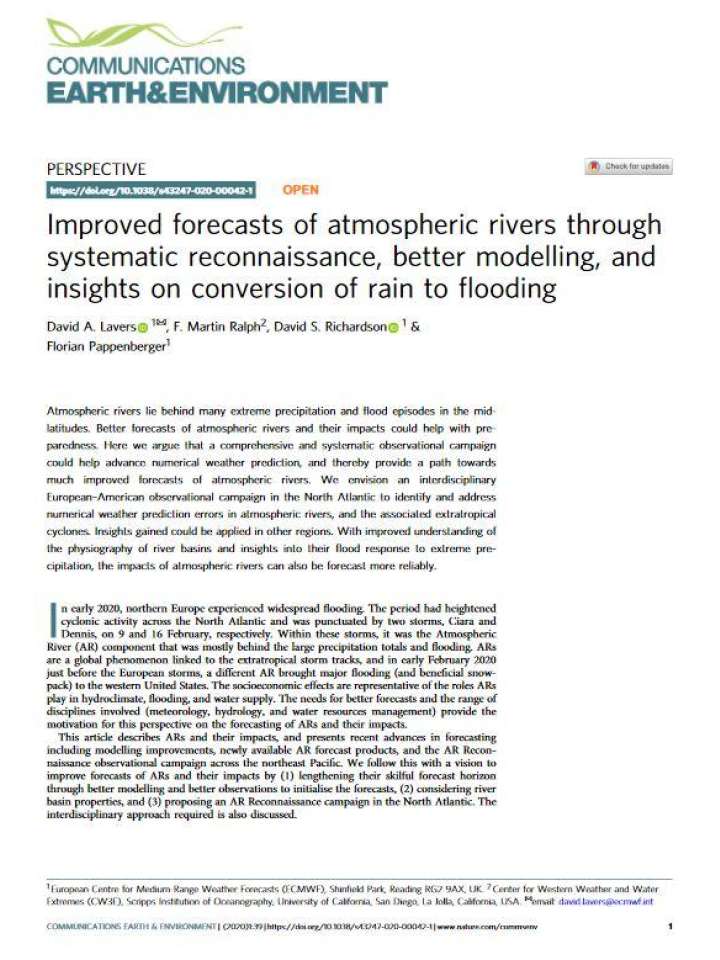Improved forecasts of atmospheric rivers through systematic reconnaissance, better modelling, and insights on conversion of rain to flooding
The authors argue that a comprehensive and systematic observational campaign could help advance numerical weather prediction, and thereby provide a path towards much improved forecasts of atmospheric rivers (ARs). They envision an interdisciplinary European–American observational campaign in the North Atlantic to identify and address numerical weather prediction errors in atmospheric rivers, and the associated extratropical cyclones. Insights gained could be applied in other regions. With an improved understanding of the physiography of river basins and insights into their flood response to extreme precipitation, the impacts of atmospheric rivers can also be forecast more reliably.
The main focus of this perspective is the outlining of a vision to improve forecasts of ARs and their impacts. The authors believe this may be achieved through three principal ways:
- The continued improvement in NWP systems and thus the lengthening of the skilful forecast horizon, e.g., by better resolving the interaction between the water vapour and latent heat release in ARs and WCBs, and the mid- and upper-level atmospheric flow, as well as examining the stable boundary conditions characteristic of AR conditions;
- The detailed investigation of how heterogeneities in the land surface physiography in sometimes adjacent river basins affect how AR precipitation is converted into river discharge; and
- The proposal of an interdisciplinary European–American observational campaign in the North Atlantic, named herein ‘AR Recon Atlantic’.
Explore further
